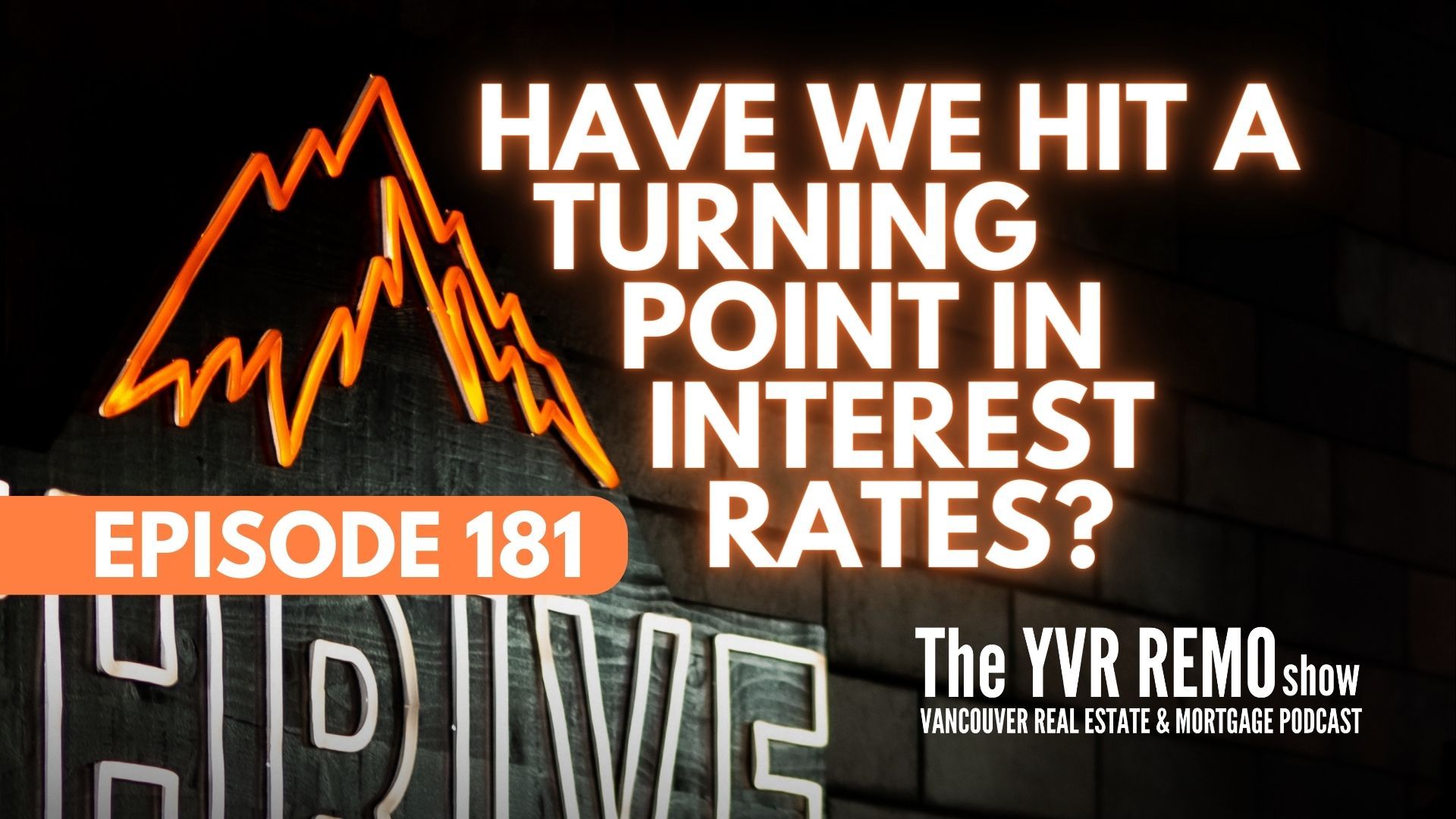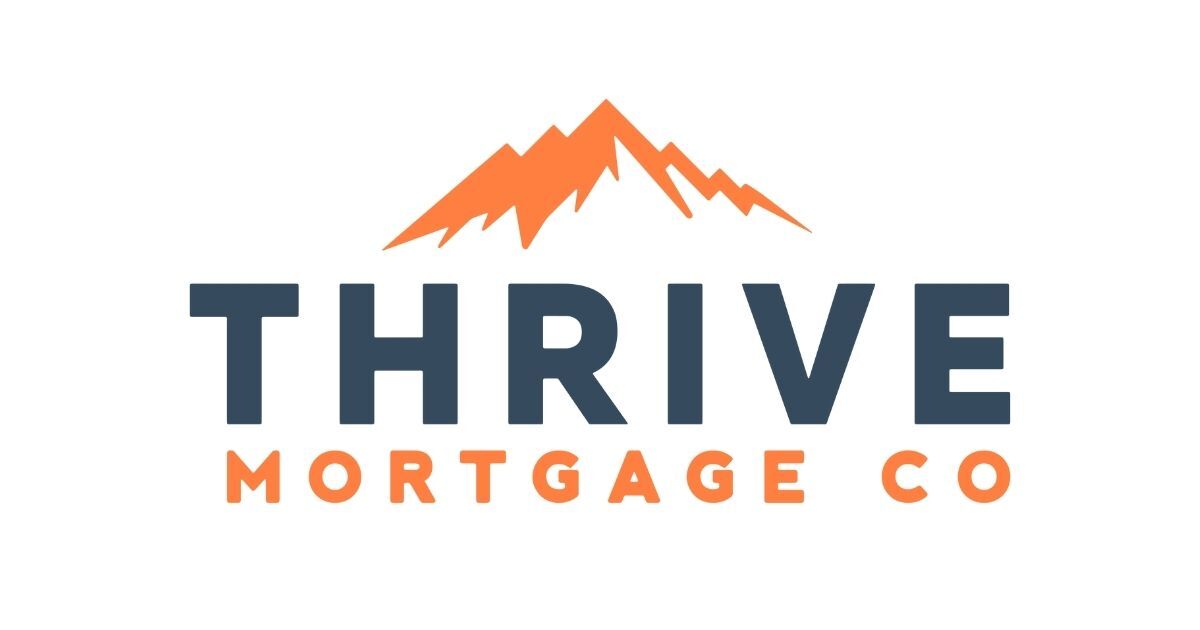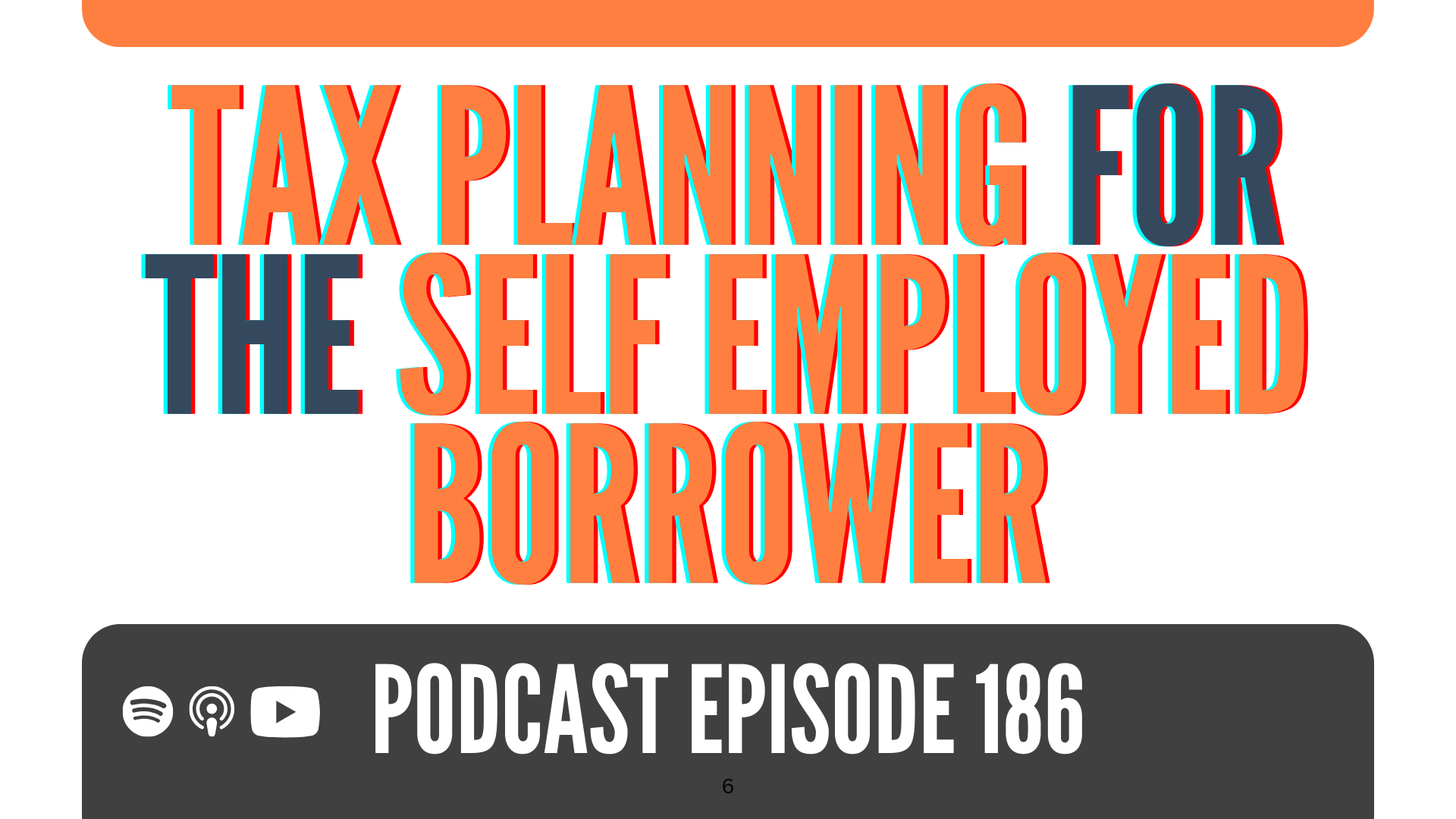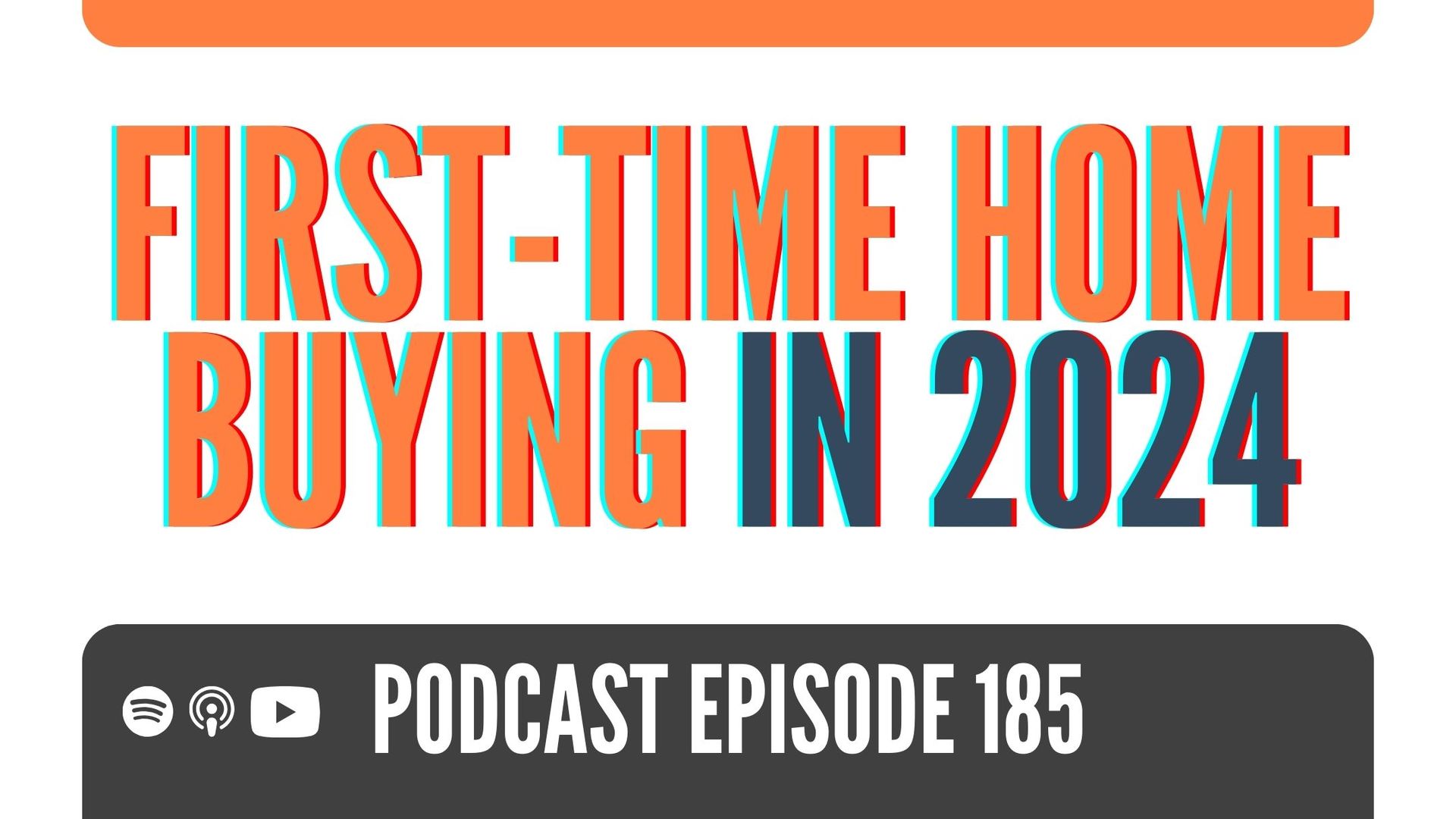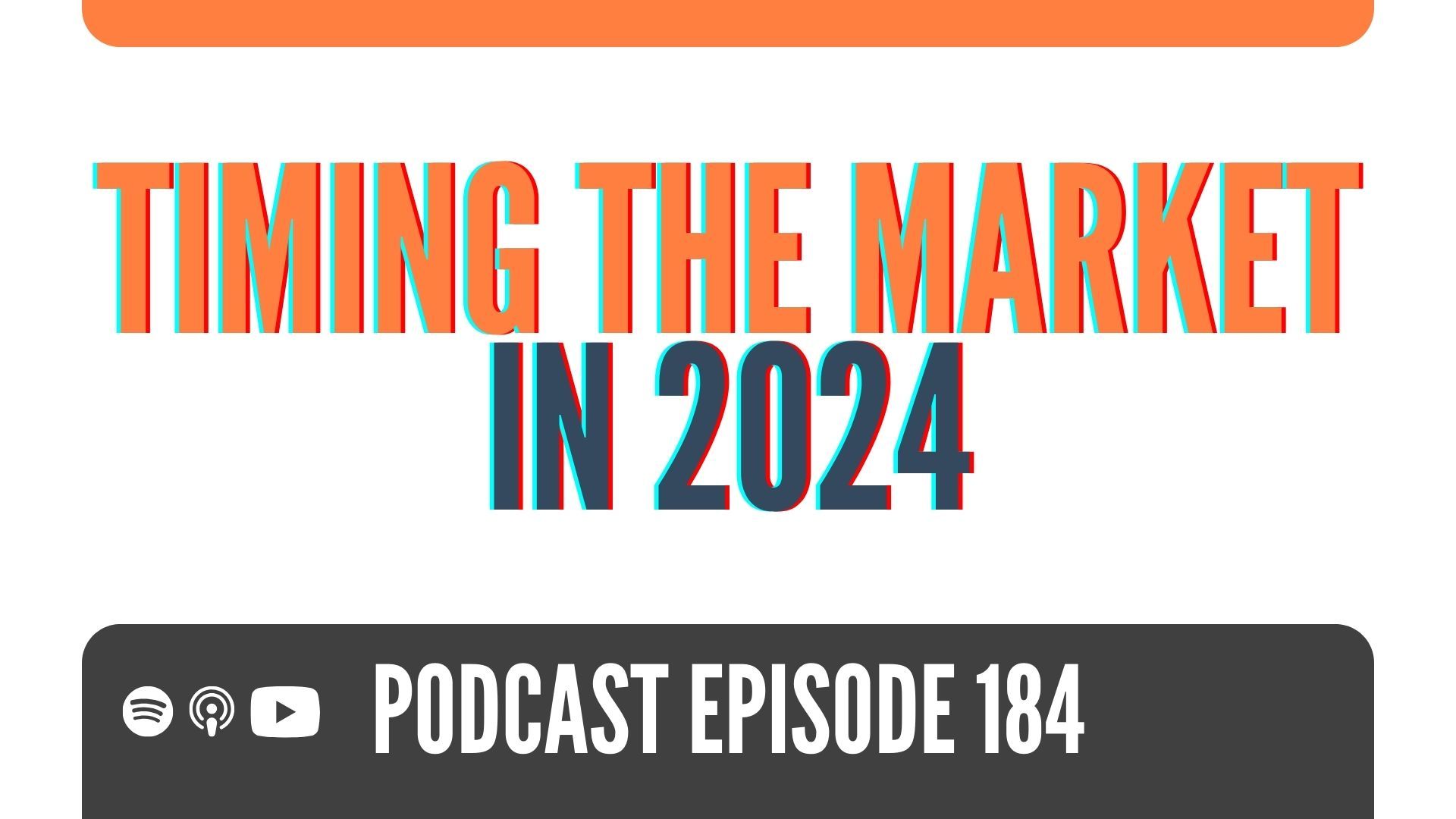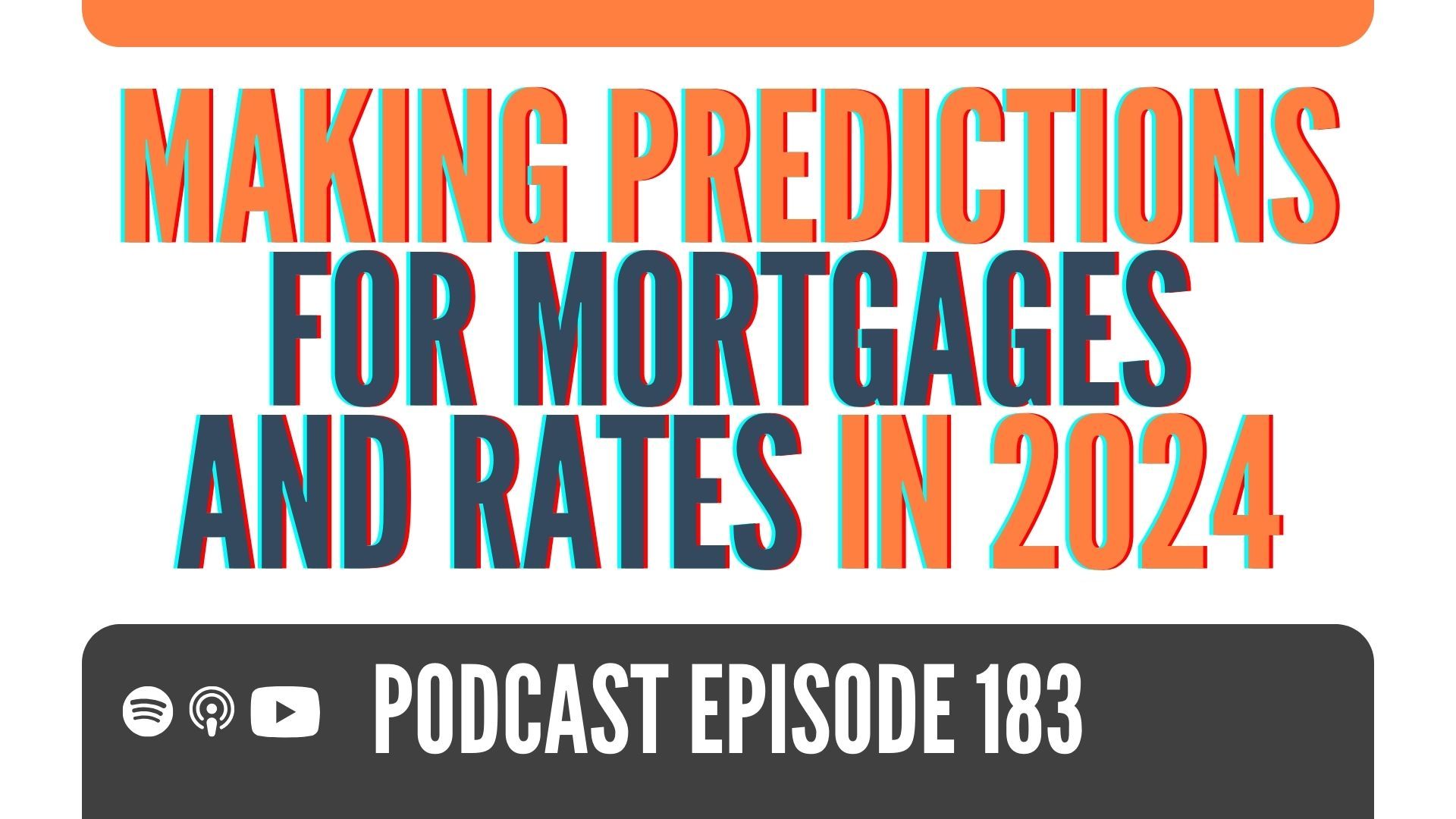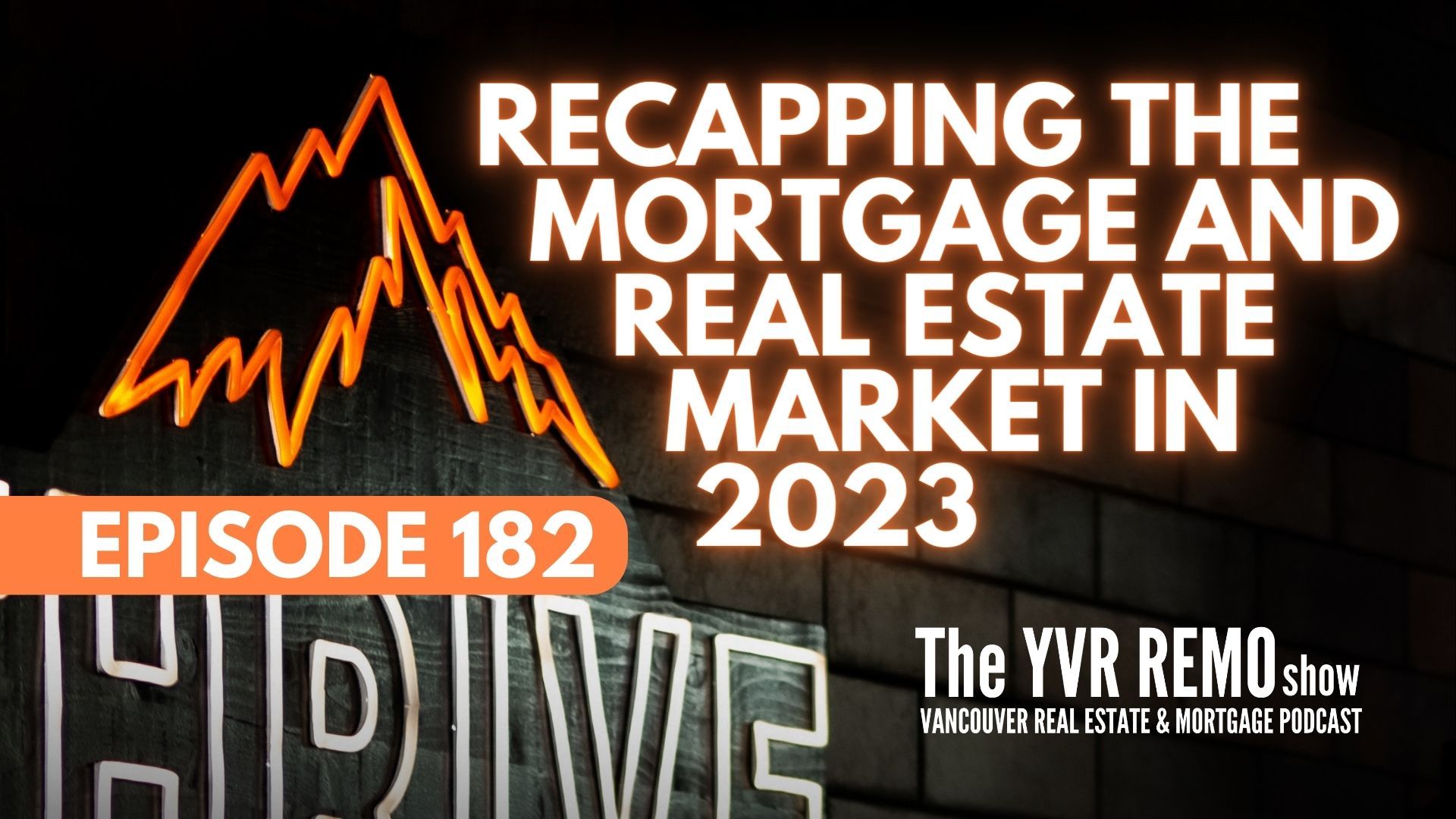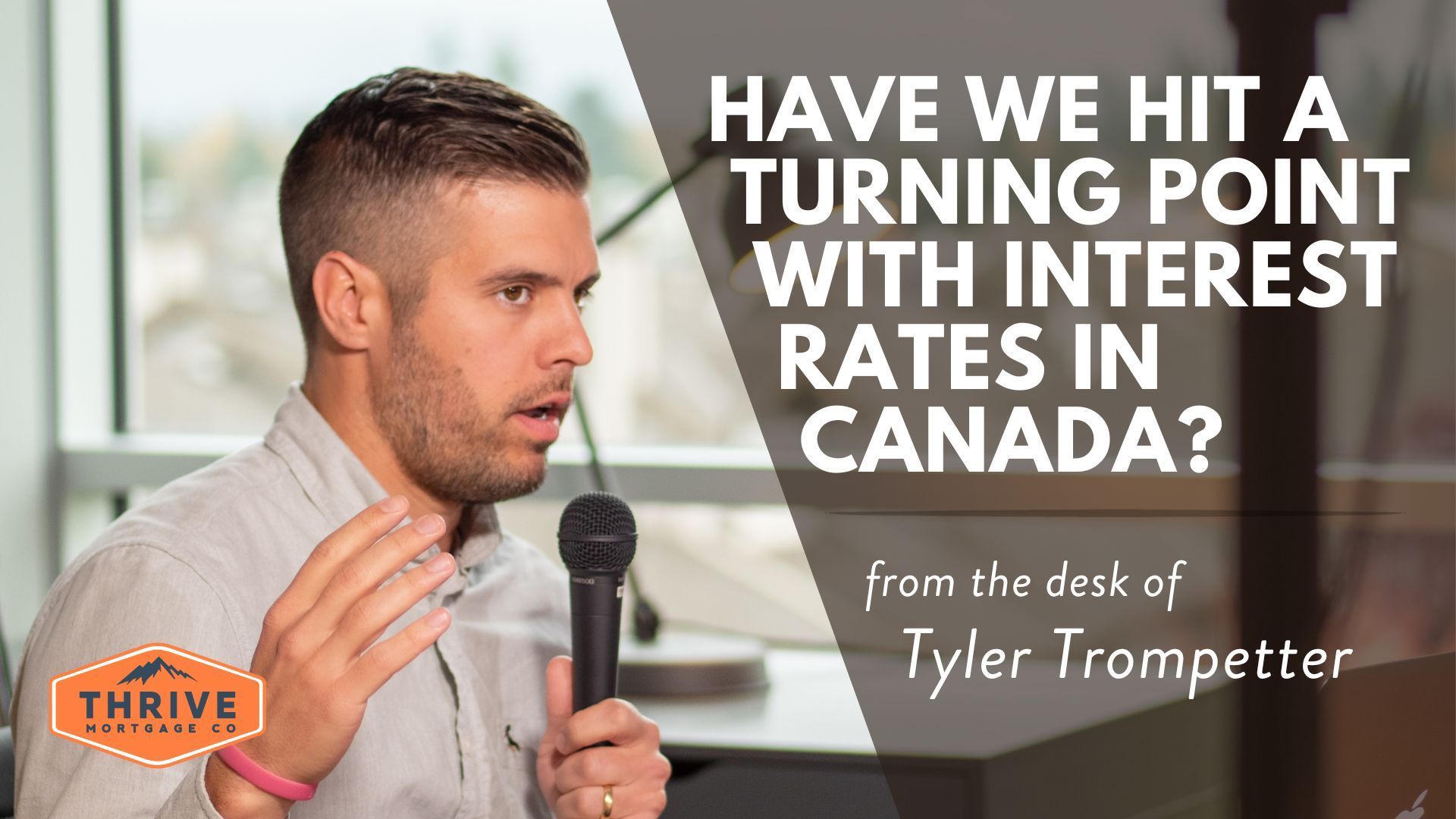The #1 Missed Opportunity: RENEWALS! | The YVR REMO Show
What we're going to talk about here today is applicable no matter when you listen to this. This is an important consideration for you if you have a mortgage or if you're planning to get one. We like to think of this as the biggest missed opportunity when it comes to mortgage financing for most mortgage holders.
It's your mortgage renewal or maturity.
What happens when you hit renewal?
What are your opportunities?
This is the number one missed opportunity that people have when it comes to taking care of their financing.
UNDERSTANDING RENEWALS
We talked to borrowers that have existing mortgages and it's mind-blowing how many people don't know when they're up for renewal. They don't know what it looks like, what they need to do, if they can switch to a different lender, or if there's a penalty. There's no education around the renewal process because everything's focused on getting that new mortgage or getting your house when you're first purchasing. It's also mind-blowing how many people don't research at the time of renewal. So if you're with a bank, that bank is going to try to keep your mortgage with them. Three months before your renewal date, they're going to reach out and make you an offer. Most Canadians just sign it and they move forward. They lock into another five-year fixed term without looking into what other options are out there.
Is there a better rate?
Is there a better product?
Should you flip from a fixed to a variable?
There's a lot that goes into that renewal. It needs to be well thought out and planned. That is not happening for most people when they're renewing. If you're not working with a detailed broker, like our firm, unfortunately, the education just isn't there.
People are focused on getting the rates and terms when they get their first mortgage. When it comes to renewal, it's not even a consideration for a lot of people. They don't think about the fact that their bank doesn't have their best interest. This is why it's such a huge opportunity and this is why banks have started to bring on and hire strong retention teams. This is where they make a ton of money, the first term of the mortgage. The second term is where the banks are purely profiting.
WHAT IS A RENEWAL?
A lot of clients may not have experienced a renewal because they've broken their mortgage early to refinance or drop their rate. It could be a first-time homebuyer that's just waiting to get to that maturity date.
What is a maturity date?
Maturity date refers to the date on which a borrower's final loan payment is due.
The Canadian average client that we work with takes a five-year term. The very last day of that term is going to be your maturity date and that is the end of your existing term. You have to have a decision made by that date. You're going to start to hear from your bank and or whoever is managing your mortgage quite a bit before this maturity date. We're typically reaching out six months in advance. There are opportunities to do what's called an early renewal. You could look at your options and renew into a new term before the maturity date. In some cases, you may not have an early renewal option. The penalties to break early, we're talking six months or less, are very minimal. The ability to get a good offer that's available could be worth breaking that mortgage early.

OPTIONS AVAILABLE TO YOU
When you're at renewal time, one of the biggest things is you can do is change what option you're in at that time. You can stay with your existing lender and sometimes it makes sense to do that. That's a conversation you need to have with independent professionals like us, as opposed to working with that bank, because their primary objective is to keep you on board.
At renewal, you can leave that lending institution at any time or make structuring changes. You can go to a one-year term, two-year term, three-year term, five-year term, variable-rate, fixed-rate, open mortgage, or a closed mortgage. It might make sense to go into an open term if you're moving, so you don't have to pay a large penalty. You can take your mortgage anywhere you want. That's important to recognize because people think that they're just locked into that bank. It's not a difficult process and it is something that we do all the time for people, but that option is open to you. The only cost is the discharge fee, which is mandated depending on the province you're in. In BC, it's around $75 right now.
PENALTIES WHEN RENEWING
The reason that someone might wait for maturity or that renewal is that they're in a fixed rate with a big penalty. You have a $30,000 penalty that you don't want to pay. You don't always have to wait for your renewal. If you're going to break your mortgage early, there will be a penalty. Variable-rate penalties are three months of interest, very minimal. That's where we typically see people refinancing a lot during the term if it makes sense financially because the penalties are low. There's no big hefty penalty holding someone back. Even with fixed-rate penalties, we've seen people pay $15,000 penalties and it's still made sense financially. They're still going to recoup that cost by getting into a different product. You do not have to wait until the end of your term to change your mortgage, sell your house, or refinance. You can do it within, you just have to understand what that penalty-breaking cost is. If it's feasible and achievable to recoup, or if you're just comfortable with the cost, you can do that at any point within your term.
TIMELINES
Being aware of timelines is important. We get this quite a bit where somebody will come to us and say, my maturity date is next week, what are my options? If your best options are to leave your current lender, it's very unlikely that your mortgage is going to come together. You're going to be in a position to leave on time. In this case, you're now going past your maturity date. That's not necessarily a bad thing but you do need to be aware of what that looks like. It's very important to communicate with your lender, don't ignore your lender just because you're leaving them. If you don't talk to them and you reach the maturity date, 90% of the lenders will just automatically roll you into a six-month closed term. That would be at a similar interest rate to what you're at. Now you're locked into another product for six months and if and to break that, you're going to be looking at a penalty. Call your lender and say, I'm looking at my options that are better than what you're offering me. Tell them you need to roll into an open term. They're going to talk you out of doing it because the rate could be as high as 7%. You got to keep in mind, this is only going to be for a couple of days, or maybe a week. The cost of having a higher rate for a short period is interest-only during that time. It's very much worth it to evaluate your options.
It might take a week to get your full application piled up and then take three to four weeks to close. You're going to have to open or pay costs that maybe wouldn't have otherwise. Does that mean you can't do a renewal? You definitely can but it's super important to be aware and be communicative with your lender.
You may have that conversation and in good faith, ask for that open turn, but it doesn't happen. Get confirmation in writing or in an email that they did put you in the open term.
DOES IT ALWAYS BENEFIT TO LEAVE YOUR LENDER?
There are two kinds of ways to look at this because we'll see lenders that will come out and they'll have a very competitive renewal offer. If that is the case, we still need to have a conversation. We can give you full confidence in that. We can talk about the terms and what are your plans. Do you think you're going to sell in a couple of years? Oftentimes, banks won't offer you their best rate, and that's because they know that 65% of Canadians sign it and send it back, then renew. Right now the bank is more profitable because they've given you a higher rate than they could have. 35% of the time, when we're working with a client on our renewal, we might just help them stay with their current bank. If the rates aren't too far off, we'll help you negotiate with your bank to get the slightly lower rate and get the best possible outcome from your institution. Having that conversation with us is so important.
There is work involved to more move your mortgage. Understanding what that means is you are re-qualifying. You are you're putting your documents together again and you do need to make sure you're still employed, you still have great credit, you haven't taken on big debts, because you might not qualify for the mortgage you currently have. It doesn't mean don't talk to us and figure out what your options are. Understand that when you move your mortgage to save a rate, there is a bit of work involved. That work is always worth it.
A renewal process with your existing lender is quite easy. You don't need to panic if you're out of work or you've taken on big debts. We can always make this work, the key thing is to just start the conversation.
EARLY RENEWALS
There were a lot of banks that were reaching out to people and saying, do you want to renew early? In many circumstances, we don't recommend entertaining early renewals. You're locking into a whole new term, which is a concern concerning penalties and that extra five years that it takes to do that. Another couple of considerations around early renewals are that you're paying a higher interest rate to lock-in.
OPPORTUNITIES WITH RENEWALS
You're free at renewal, you can increase your mortgage, you can pay a bunch, you can pay half your mortgage off with no penalty, you can pay the whole thing off with no penalty. There's a handful of different strategies that you could look into at renewal if it makes sense for your situation.
Extending Amortization
You could be 10 years into your mortgage, and maybe your parent's payments are fairly high because you're on a 20-year amortization. You will have the ability to extend that amortization out to 30 years if you wanted to. Not saying that's the best thing to do financially, but this is going to help your cash flow dramatically. Maybe your spouse lost their job, your income has decreased, or you had to take on some household debt. This is something that can be short-term, but it can help your cash flow inside of your house. You always can speed up your mortgage payments. If you need a more comfortable, lower payment, extending your amortization is huge. You don't change the mortgage amount if you don't want to, but it can drop your payments.
Re-amortization is something that gives you the ability to reduce your debt to qualify for more, lowering your debt to income ratio. Anytime you're restructuring the amortization period, you are doing a refinance. Being at renewal time, your costs are dramatically lower because there are no penalties or fees to do it that way. That's the time to have these conversations.

Canadians as a whole typically make their mortgage payments. If someone's going to miss a payment, it's typically a credit card or maybe a car loan at most. If you do have missed mortgage payments for any reason, and you're up for renewal, that bank has you red-flagged and that could be a potential issue for default. They might say, we're willing to renew you, but you have to re-qualify and we need all your documents. We need to pull credit. Just another reason to make sure that you maintain mortgage payments and don't let them slip up. Some of the clients that we've worked with have missed mortgage payments, it's not because they don't have the money, but because they didn't have the money in the right account. It's little things like that. Just make sure when you're buying your house to document if it was a bank error or a minor error on your side. Keep documentation of everything. If that does come up at renewal it can be a saving grace.
Taking Advantage of Interest Rates
This is where it comes in handy to work with a good mortgage team because we watch rates and we call our clients if there's a potential opportunity to make a change. We run the numbers to see if it's cost-effective to pay your penalty. There is a good chance that if you took a mortgage three years ago that if you're renewing and two years from now, you could be looking at lower interest rates. that might mean going from a fixed to a variable rate. On the flip side, you could also be renewing at higher rates. We had a lot of clients that got into these amazing 1.8% fixed rates that we saw for a six-month sprint. We can almost guarantee that in three to five years when out for renewal, those are not going to be offered. Those people are going to be looking at a bit of a payment shock unless they're looking at a variable still that cheap.
Interest Rates Are Not The Only Factor To Look At.
A lot of people at renewal are shopping rates. The rate isn't everything. It's trying to figure out if you're in the right product. Your current mortgage that you have right now might not allow the flexibility to be able to access your equity in your home when you want to do that. It might not be structured in the way that it could be best optimized for saving you money. It ends up coming down to the specific products, institutions, and flexibility around that.
The Ability To Change Products
Having answers to all these questions we're asking helps us provide advice on if it makes sense to change products, especially if you're in a fixed rate. Your bank will offer you a renewal letter, as we talked about, for a rate that's typically higher than what you would get in the market. It will always be the same product that you were originally in. Sometimes the lender will give you the fixed-rate variable. The ability to upsize is something that you need to look at. Looking at the flexibility of a variable or just the flexibility of another lender's product is so important for these future goals. These are the reasons why we ask these questions.
If none of the above apply to you and you don't think you need any of these opportunities at renewal, we recommend everybody get a HELOC right through five years. If you live in the Lower Mainland, your property has probably gone up dramatically in value. If you qualify for it, there's absolutely no reason not to. You're at renewal, there are no penalties, it's easy to do and you never know when you're going to need it.

SUMMARY OF TIPS WHEN RENEWING
- At the end of your term, you may leave and go anywhere as long as you qualify.
- Don't ignore your renewal. Get the paperwork sent over to us. Let's have a look and see what we can do.
- Always get independent advice. Make sure that it makes sense for your circumstance.
- If you're thinking about selling, don't lock in around that time. Get advice around what your options are in terms of not locking in or locking in.
- Get that home equity line of credit. If your lender doesn't offer that, that's why we're talking to you. Let's see what options we can do. It will save you a lot of money in the long run when you go to buy that car, boat, or next property.
- Be aware of timelines and plan.
The percentage of people that are renewing and staying with the same bank, versus refinancing and restructuring year over year, has been up and down. A few years ago when they put in the first stress test, we saw renewals go up in numbers. In the last couple of years, we've seen that drop-off and we're seeing a lot more refinancing. People are starting to make a change midterm more than ever before, very few people we talked to are renewing.
WHY AREN'T AS MANY PEOPLE RENEWING?
People aren't getting independent advice. They're doing it right through their bank and they're not getting that option presented to them.
If you know you're getting towards the end of the term, reach out, we'll give some free advice and let you know what you can do.
We're on Instagram!
instagram.com/thrivemortgageco
Check us out on Facebook!
How to Reach US! 📲
Call 604.398.5575 or Email us!
More Questions or READY to get started!?
Just Ask US > Click Here to set up a call or EMAIL us
